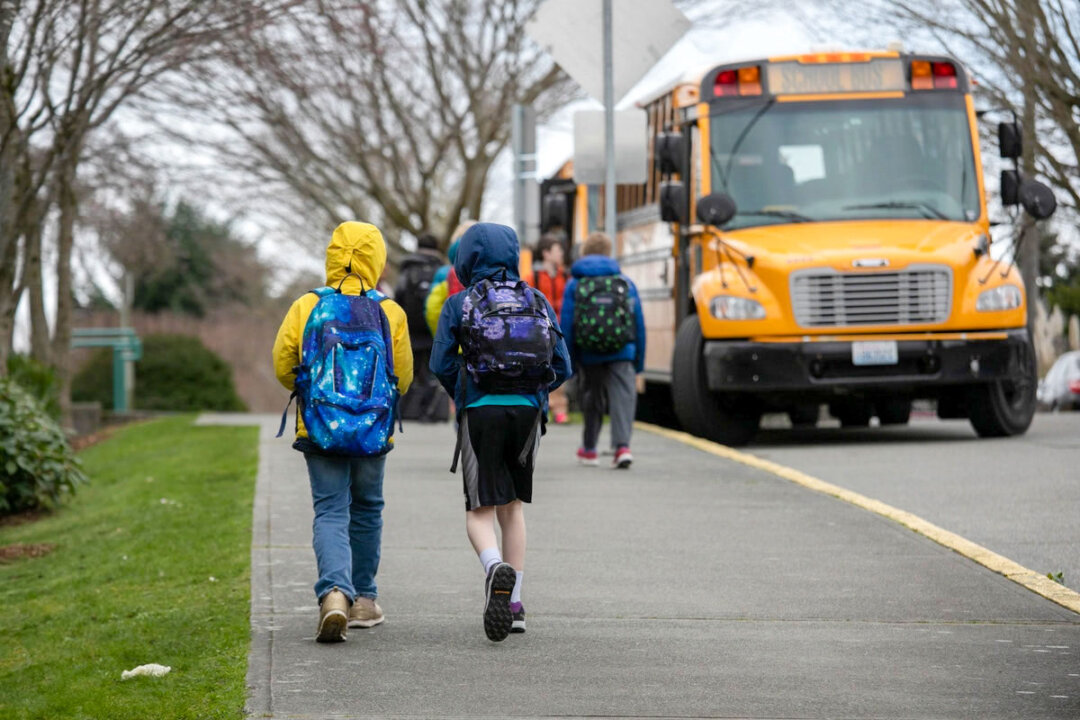Taxpayer-funded vouchers for private education or homeschooling is expected to remain a divisive issue.
A cast of well-known Democrats and Republicans is urging families to lobby their state and national leaders for universal school choice after President-elect Donald Trump takes office in January.
“If ever there was a time to put parents in charge, it’s now,” Jeanne Allen, founder and CEO, Center for Education Reform’s (CER), said at a recent summit in Washington.
The CER event brought together advocates for school choice—that tax dollars for education should follow the child, regardless if they attend public schools, private schools, charter schools, or are homeschooled.
The event followed an election in which neither presidential candidate spoke much about education, and after voters in Colorado, Kentucky, and Nebraska rejected pro-school choice measures. Opponents of school choice say funding will be diverted from the most needy schools, especially in low socioeconomic areas.
Kellyanne Conway, Trump’s campaign manager in the 2016 election, said the president-elect supports school choice and predicts he is ready to use the bully pulpit to make school choice a priority in the years ahead.
“We have a mandate now to do great things for people who voted for freedom,” Conway said, noting that many wealthy Democratic leaders send their children to the most elite, expensive private schools, but veto school choice legislation.
Colorado Gov. Jared Polis, a Democrat who chairs the bipartisan National Governor’s Association, said providing school choice options such as charter schools is a difficult task in the beginning because there is likely to be opposition and government bureaucracy, but once the new school is functioning, “they quickly become cherished as part of the community.”
Colorado’s school choice law allows parents to select a public school for their child, including charter schools, but it does not fund private school vouchers or provide tax dollars for homeschooling.
The state’s Amendment 80, which would have codified school choice into the state Constitution and paved the way for more state-funded school-choice options, was defeated with 51.6 percent of the voters saying no, according to the state’s official election results.
Polis said that he hopes the incoming administration works at “blurring the lines” between K–12 and higher education. He hopes Pell Grants can be expanded to consider the growth of career and technical education and the abundance of U.S. students who will earn college credits before they graduate from high school.
Former Arizona Gov. Doug Ducey cautioned that while teachers unions oppose school choice, the teachers individually should not be viewed as the opposition.
“Not only do we need the support of a loving family, we need a great teacher at the front of a classroom,” he said.
Ducey said that “education has been flatlining” in the United States for decades. He supports abolishing the U.S. Department of Education and redirecting its funding to education spending at the state level.
At the national level, Sen. Bill Cassidy (R-La.) plans to push his Educational Choice for Children Act, which would provide income tax credits to individuals or organizations that donate money to private school voucher programs.
He said he hopes to replace Sen. Bernie Sanders (I-Vt.) as the chairman of the Health, Education, Labor, and Pensions Committee when committee appointments are updated after Republicans are projected to have won a 53–47 majority in the Senate.
Cassidy, a physician, said he and his wife have worked to help children and adults with dyslexia, and he’d like to see school choice offerings include designated schools that can provide specialized reading instruction.
Cassidy anticipates challenges and litigation from the National Education Association teachers union, which on Sept. 10 sent letters to members of Congress urging them to vote no on Cassidy’s bill, saying voucher programs take funding away from public education and exclude low-income students.
“For us to be successful, we have to work together,” Cassidy said.
“The unions are on the other side. But the power of mamas is incredible.”

